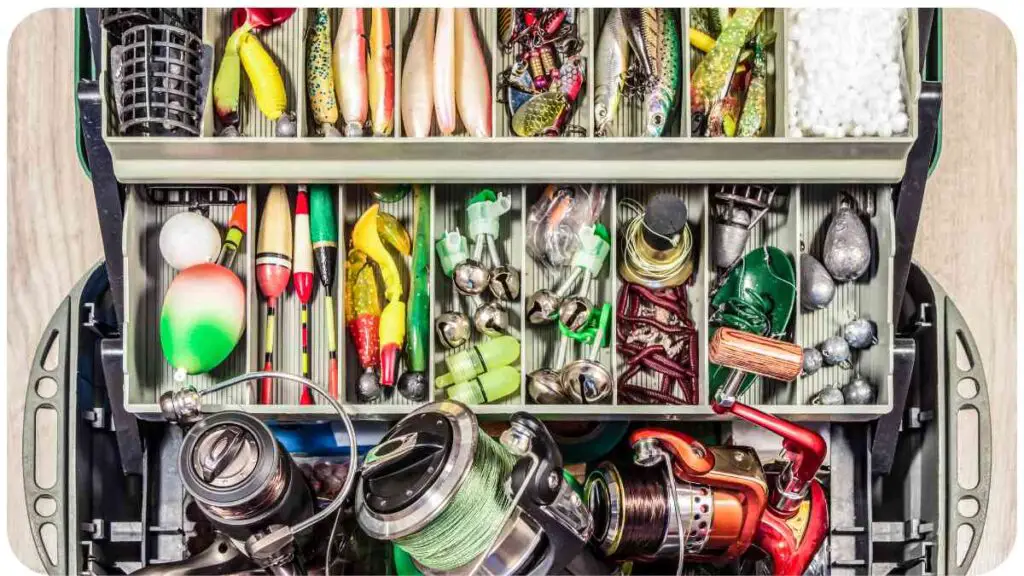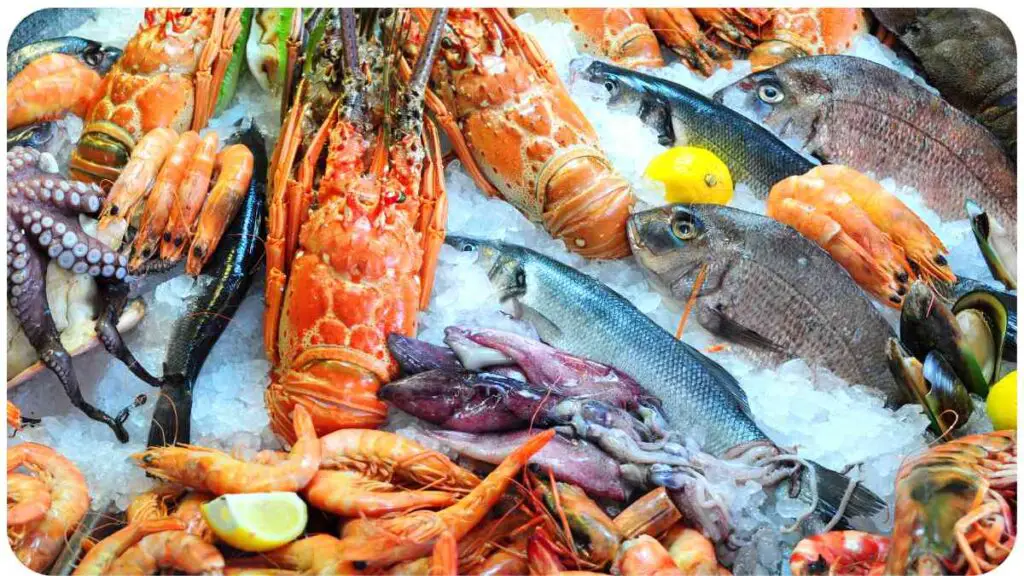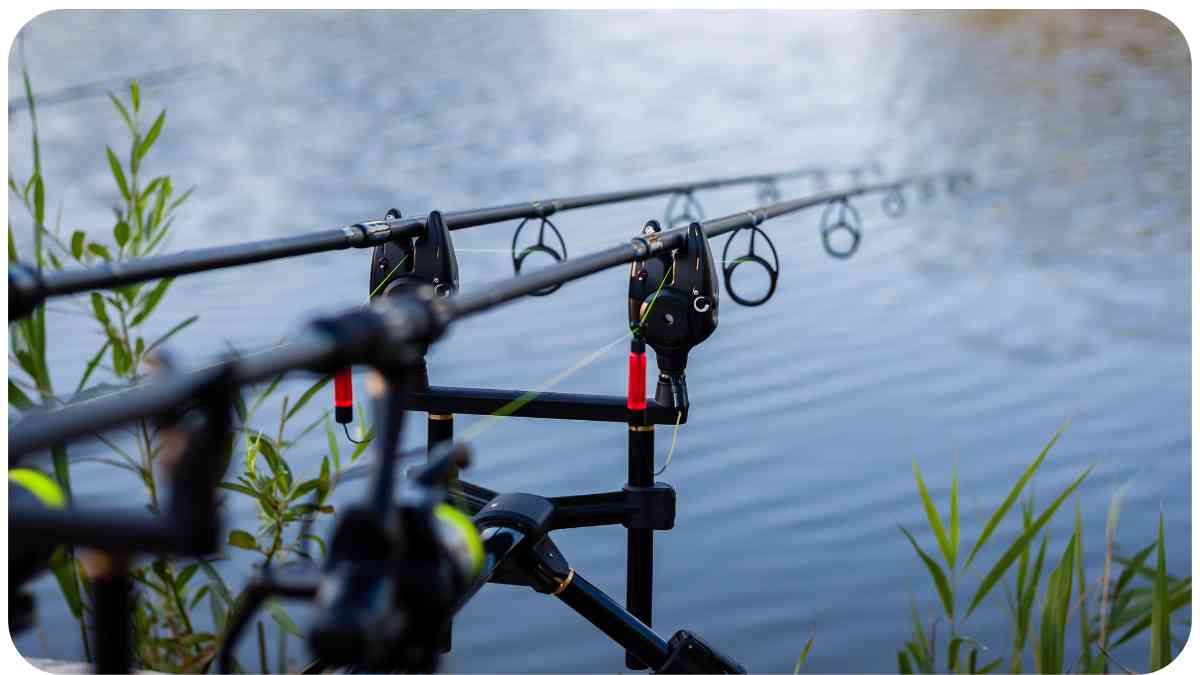Welcome to the world of survival fishing, where the fish aren’t always eager to bite, but your resourcefulness and know-how can make all the difference. In this comprehensive guide, we’ll explore troubleshooting techniques that will help you reel in a meal even when the odds are stacked against you.
Drawing from my years of expertise in survival fishing, we’ll dive deep into the tactics and strategies that can make you a successful angler in challenging situations.
| Takeaway |
| Survival fishing requires adaptability, patience, and resourcefulness. |
| Choose the right location, gear, and bait for success. |
| Be prepared to troubleshoot and use alternative fishing techniques. |
| Prioritize safety and respect the environment while fishing. |
| These survival skills can also enhance your recreational fishing. |
2. Understanding the Basics of Survival Fishing
Survival fishing differs significantly from recreational fishing. It’s not about relaxation; it’s about sustenance. To excel in this realm, you must understand the basics. In survival fishing, you are often dealing with limited resources and unpredictable conditions. The key is to adapt and innovate.
When crafting survival traps, precision is key. “Common mistakes, like improper baiting or placement, may render your efforts futile. Ensure success by avoiding these pitfalls.
3. The Importance of Location
Location is everything in survival fishing. Fish congregate in specific areas based on various factors. Knowing where to cast your line is critical. Let’s examine how you can increase your chances by choosing the right spot.
4. Fishing Gear Essentials

Having the right gear is essential. Your survival fishing kit should be compact yet effective. Here’s a table outlining the must-have fishing gear for your kit:
Table 1: Must-Have Fishing Gear
| Item | Purpose |
| Fishing Line | To cast and retrieve |
| Hooks | To catch fish |
| Sinkers | To control bait depth |
| Bobbers | To detect bites |
| Pocket Knife | For cutting lines and bait |
| Multi-tool | Versatile applications |
| Paracord | For various uses |
| Small Container | Bait storage |
| Safety Pins | Improvised hooks |
5. Bait and Lure Selection
Choosing the right bait and lures is akin to selecting the right tools for the job. Different fish species have different preferences. Here’s a table to help you make informed choices:
Losing your way in the wilderness is daunting. “Recalculating your bearings is crucial for survival. Learn effective strategies and techniques to find your way back
Table 2: Types of Bait and Lures
| Bait/Lure | Suitable Fish Species |
| Worms | Most freshwater fish |
| Insects | Panfish, trout |
| Crayfish | Bass, catfish |
| Small Fish | Predatory species |
| Artificial Lures | Varies by design |
| Dough Baits | Carp, catfish |
When the fish aren’t biting, it often means they’re being selective. Experiment with different baits and lures until you find what works in your specific situation. Remember, adaptability is key in survival fishing.
6. Patience and Persistence
In survival fishing, patience is more than a virtue; it’s a necessity. Fish might not bite immediately, and you’ll need to be persistent. Try various techniques, change bait, and alter your approach until you get results.
7. Alternative Fishing Methods
When traditional methods fail, it’s time to get creative. Here’s a table with alternative fishing techniques that can be your lifesaver in tough situations:
Table 3: Alternative Fishing Techniques
| Technique | How It Works |
| Trotline Fishing | Passive fishing with lines |
| Fish Traps | Captures fish over time |
| Hand Fishing | Catching fish by hand |
| Gigging | Spearfishing at night |
| Ice Fishing | Through ice holes |
Incorporating these methods into your repertoire can be a game-changer. Each has its own set of challenges and rewards, so practice and adapt as needed.
In survival situations, water safety is paramount. “When faced with questionable water sources, knowing how to troubleshoot is vital. Discover essential tips for drinking safe.
8. Reading the Environment
The environment holds clues that can lead you to a successful catch. Pay attention to water currents, ripples, and underwater vegetation. Understanding these signs can significantly improve your chances.
Table 4: Common Fishing Obstacles and Solutions
| Obstacle | Solution |
| Thick Vegetation | Use weedless lures or topwater baits |
| Low Visibility Water | Use scented baits or lures |
| Strong Currents | Anchor your bait or use heavier lures |
| Overhead Obstructions | Adjust casting technique or location |
| Deep Water | Use sinking lures or weights |
Navigating these obstacles requires adaptability and quick thinking. By having solutions at your fingertips, you’ll be better prepared for the unexpected challenges of survival fishing.
10. Weather Wisdom
Weather can play a significant role in fishing success. Changes in temperature, wind, and barometric pressure can affect fish behavior. Understanding these factors can help you make informed decisions.
Building a fire is a survival skill, but it’s not foolproof. “Common mistakes may leave you without warmth. Explore solutions for igniting a successful fire.
11. Safety First
Survival fishing can put you in remote and potentially hazardous environments. Prioritize your safety with the following precautions:
Table 5: Safety Measures for Survival Fishing
| Safety Measure | Importance |
| Life Jacket | Buoyancy and safety |
| Sun Protection | Prevent sunburn and heatstroke |
| Insect Repellent | Ward off pesky insects |
| First Aid Kit | Treat minor injuries |
| Communication Device | Emergency communication |
Remember, your well-being is paramount. Safety measures should never be compromised, even in the pursuit of survival.
12. The Art of Cooking Your Catch

Once you’ve successfully caught a fish, it’s essential to know how to prepare and cook it. Whether you’re pan-frying, grilling, or making a stew, cooking your catch properly is the final step in this survival journey.
Foraging for food demands accurate plant identification. “Troubleshoot the challenges of discerning between edible and poisonous plants. Arm yourself with knowledge for wild plant identification.
13. Conservation and Ethical Fishing
In survival fishing, it’s crucial to respect the environment and the fish population. Follow local regulations and practice catch-and-release when necessary. This ensures that fish populations remain sustainable for future survival needs.
14. Thriving Beyond Survival
While this guide primarily focuses on survival fishing, the skills you acquire can be invaluable for recreational fishing as well. As you become more adept at catching fish in challenging situations, you’ll find that traditional fishing becomes a breeze.
15. Conclusion
Survival fishing is a skill that combines expertise, adaptability, and patience. When the fish aren’t biting, your knowledge and resourcefulness become your greatest assets. Remember the importance of location, gear selection, and alternative techniques. Stay safe, and always respect the environment. In the end, survival fishing is not just about sustenance; it’s about resilience and the ability to thrive even when faced with adversity. So, when the fish aren’t biting, don’t give up troubleshoot and triumph.
With these techniques and insights, you are better equipped to tackle the challenges of survival fishing and emerge victorious, hook, line, and sinker.
Further Reading
Here are some additional resources to expand your knowledge on survival fishing and understanding what to do when fish aren’t biting:
- 10 Ways to Catch Fish in an Emergency
- Explore this comprehensive guide that offers ten different methods for catching fish in emergency situations. Learn various techniques and strategies to increase your chances of survival through fishing.
- What Does It Mean When the Fish Don’t Bite While Fishing
- Quora often provides insights from experienced individuals. This discussion might shed light on the common reasons behind fish not biting and how to troubleshoot such situations.
- 7 Reasons You May Not Be Catching Fish
- Daggerfish Gear’s blog discusses seven common reasons why you might not be successful in catching fish. Gain insights into the potential issues and solutions to improve your fishing game.
FAQs
Why do fish sometimes refuse to bite?
Fish can be finicky for various reasons, including changes in weather, water conditions, or their feeding patterns. Understanding these factors is crucial for successful fishing.
How can I improve my chances of catching fish when they aren’t biting?
Adapt your bait and lures, change your fishing spot, and be patient. Experiment with different techniques and be observant of the environment to increase your success rate.
Are there specific times of day when fish are more likely to bite?
Yes, fish are often more active during dawn and dusk. These periods, known as the “golden hours,” are prime times for fishing.
What types of bait work best for different fish species?
Different fish species have varying preferences for bait. Research and choose bait that is known to attract the specific fish you are targeting.
How can I stay safe while fishing in challenging conditions?
Prioritize safety by wearing appropriate gear, such as life jackets, and being aware of your surroundings. Always follow safety guidelines to minimize risks during your fishing expeditions.

Hi! I’m Hellen James, and I am the founder of Unified Survival. I have a deep passion for the wilderness and everything that goes along with it. I’ve been hiking since I was a child, and I grew up camping in state parks all over the country. But it wasn’t until recently that I learned how to survive in the wilderness.

